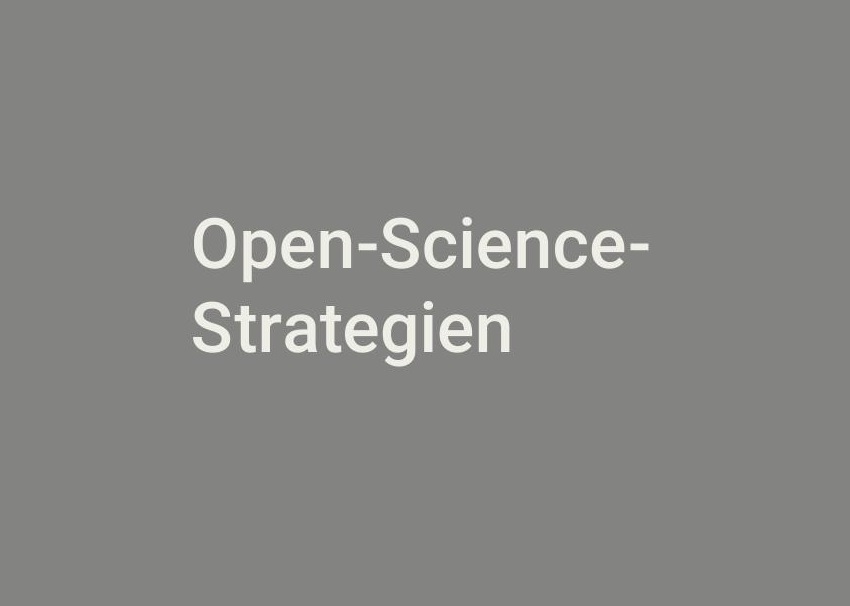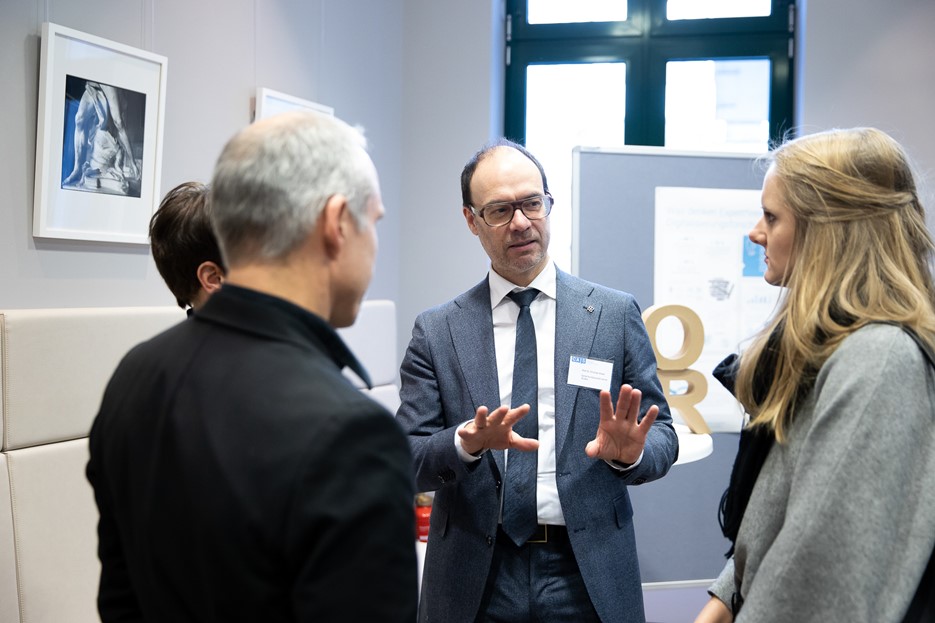Open-Science-Strategies

In research, new data sources (digital data traces) and methods (machine learning) are often used. In contrast to other surveys, those being researched are usually unaware that they and their data will become the object of research. Open science concepts, on the other hand, try to make research more transparent, comprehensible and participatory. The project addresses precisely this area of tension.

Open Science as a civil society initiative
Open Science is an interdisciplinary initiative developed in the scientific community in order to make the results of research freely and quickly accessible within science itself, but above all also for the public and civil society, for citizens and practitioners. New methods, such as open access and open data, are to be used to communicate scientific findings in a generally comprehensible way, thus making research more transparent and comprehensible.
In digitization research, work is often done with new data sources, such as social media content or data traces generated by the use of Internet-of-Things technologies. To analyze these data sources, new research methods of Data Science and Machine Learning are used, as they are often used on social media platforms themselves to analyze user behavior, mirror trends or even predict them.
The project will examine the question of which models of collaboration with ‘researched persons’ in the sense of Open Science are possible, ethically justifiable and methodologically meaningful in this research field.
Active design of digital data traces
The producers of digital data often act as active and conscious producers of content. Moving around on social media or increasingly in various contexts of everyday life that were previously not accessible to digitized data collection (Internet of Things) means not only passively leaving behind data traces, but also actively creating and adapting them as authors and consciously helping to shape public spheres. Following existing literature, it can be assumed that, for example, the phenomenon of the produser (Bruns, 2008), i.e. a blurring between the role as producer and user, shapes the self-image as data creator. Interest in generating attention in terms of new attention economies could also be important: individual users use different strategies to achieve online popularity (Marwick 2013, Tufekci 2013), possibly affecting their role in research.
How do citizen:users value data analytics?
The project investigates self-perceptions of users with regard to the use of new methods of Data Science. Initial research indicates that discourses on social media about the results of data analytics are complex and confrontational: For example, the validity of Big Data methods is questioned and the contextuality of data is emphasized, e.g., users critically question whether statements are valid without more detailed knowledge of the situational context of the survey (Kinder-Kurlanda, 2018 and 2019).
read more
Against this background, a first classification of possible roles in the collaboration between researchers and researched in research projects with innovative data sources will be developed. For example, user-driven ‘data donation’ and citizen science approaches offer various possibilities to involve ‘researchers’ as active participants in research and to use their detailed knowledge about specific technologies and their functioning to verify research results.
Approach in the project
The approach is twofold:
1. investigation of self-conceptions of social media users.
- Analysis of disputes on social media ignited by the presentation of results of analyses of user behavior (data analytics)
- Mix of methods: qualitative (e.g., content analysis) and quantitative (e.g., interaction frequencies, topic modeling as appropriate)
2. categorization of possible roles for social media users in research.
- Focus groups with researchers to discuss categorizations.
- New models of collaboration between researchers and researched.
The project combines research with best practice development. Best practice models are of interest to scientists* conducting research with new data and methods, but also, for example, to data curators supporting research work. They all face the question of which data should and may be collected and used in which way when working with innovative data sources.
Open Science: New Relationships between Researchers and Researched? On the Self-Perception of Data Analytics Target Groups
Project start: 01.04.2020
Research partner: GESIS – Leibniz Institute for the Social Sciences
Literature
Bruns, A. (2008). Blogs, Wikipedia, Second Life, and beyond: From production to produsage (Vol. 45). Peter Lang.
Kinder-Kurlanda, K. (2019). Alltagserfahrungen mit Algorithmen. In: Marion Hamm/Ute Holfelder/Christian Ritter/Alexandra Schwell/Ove Sutter (Hrsg.), Widerständigkeiten des Alltags. Beiträge zur einer empirischen Kulturanalyse. Für Klaus Schönberger zum 60. Geburtstag (S.143-149). Klagenfurt: Drava Verlag.
Kinder-Kurlanda, K. (2018). Algorithmen im Alltag. In: Jahrestagung der GWTF Gesellschaft für Wissenschafts- und Technikforschung „Verhalten und Vorhersage. Die techno-sozialen Zukünfte algorithmischer Bewertungssysteme“. Berlin, 15-16 November 2018.
Marwick, A. E. (2015). Instafame: Luxury selfies in the attention economy. Public culture, 27:1(75), 137-160.
Tufekci, Z. (2013). “Not this one” social movements, the attention economy, and microcelebrity networked activism. American Behavioral Scientist, 57(7), 848-870.
Participating researchers
